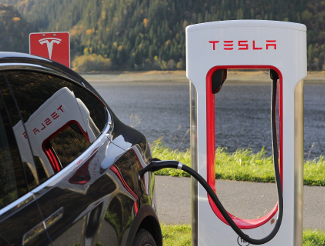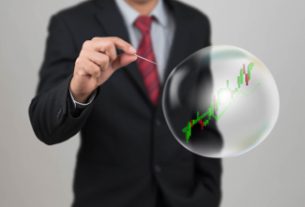It seems as though South African inventor and billionaire Elon Musk has been the darling of Silicon Valley for years. His vision for the future has certainly helped drive the popularity of Tesla’s cars, and his ideas for solar panels and space travel certainly mark him in the minds of many as a visionary. But while Teslas may be popular, the company’s stock price is what has made Musk really popular. Stock funds that have invested in Tesla have been rewarded as the stock continues to gain in value. But those gains don’t have any correlation to production, which is yet one more indicator of the massive stock market bubble that currently exists in markets.
Tesla’s stock recently broke $500 for the first time, is pushing towards $600, and its total market capitalization shot up above $104 billion. That makes Tesla’s market capitalization larger than the world’s largest automaker, Volkswagen ($90 billion). And Tesla’s market cap is now half that of the next largest automaker, Toyota ($200 billion). Surely Tesla must be doing something right to garner those types of valuations, right? Not really.
Last year Tesla delivered a grand total of 367,000 cars. While that’s not a bad figure, both Toyota and Volkswagen delivered over 10 million. So despite Volkswagen delivering over 30 times as many cars as Tesla, Tesla is judged to be more valuable than Volkswagen. If that isn’t clear evidence of investors buying the promise of the future rather than current reality, what is?
Tesla’s stock has all the hallmarks of a late stage stock market bubble, and particularly a bubble like the dotcom bubble. Back then stock markets were full of companies that had grand hopes for the future, but that couldn’t make money to save their lives. Their stocks were inflated to ridiculous levels by investors fueled by easy money, but all the easy money in the world couldn’t turn those companies into good investments. Eventually most of them, like Pets.com, fell by the wayside.
What we’re seeing today is Dotcom 2.0, where disruptive technology companies such as Tesla, Facebook, and Uber have become the darlings of Wall Street. But when the rubber meets the road, the reality is that companies like Tesla have no business being valued as high as they are. And when Wall Street finally realizes that, millions of investors will lose their shirts.
Big stock market gains may look good now, but when reality sets in and prices come back down to earth, many investors who placed their faith in these tech companies will see their 401(k)s and retirement accounts absolutely decimated. That’s why it’s more important than ever to make sure that your retirement savings are protected against financial downturn. It’s no longer a matter of “if” stock markets will crash, but a matter of “when.” Are you prepared for when that finally happens?
This article was originally posted on Goldco.



